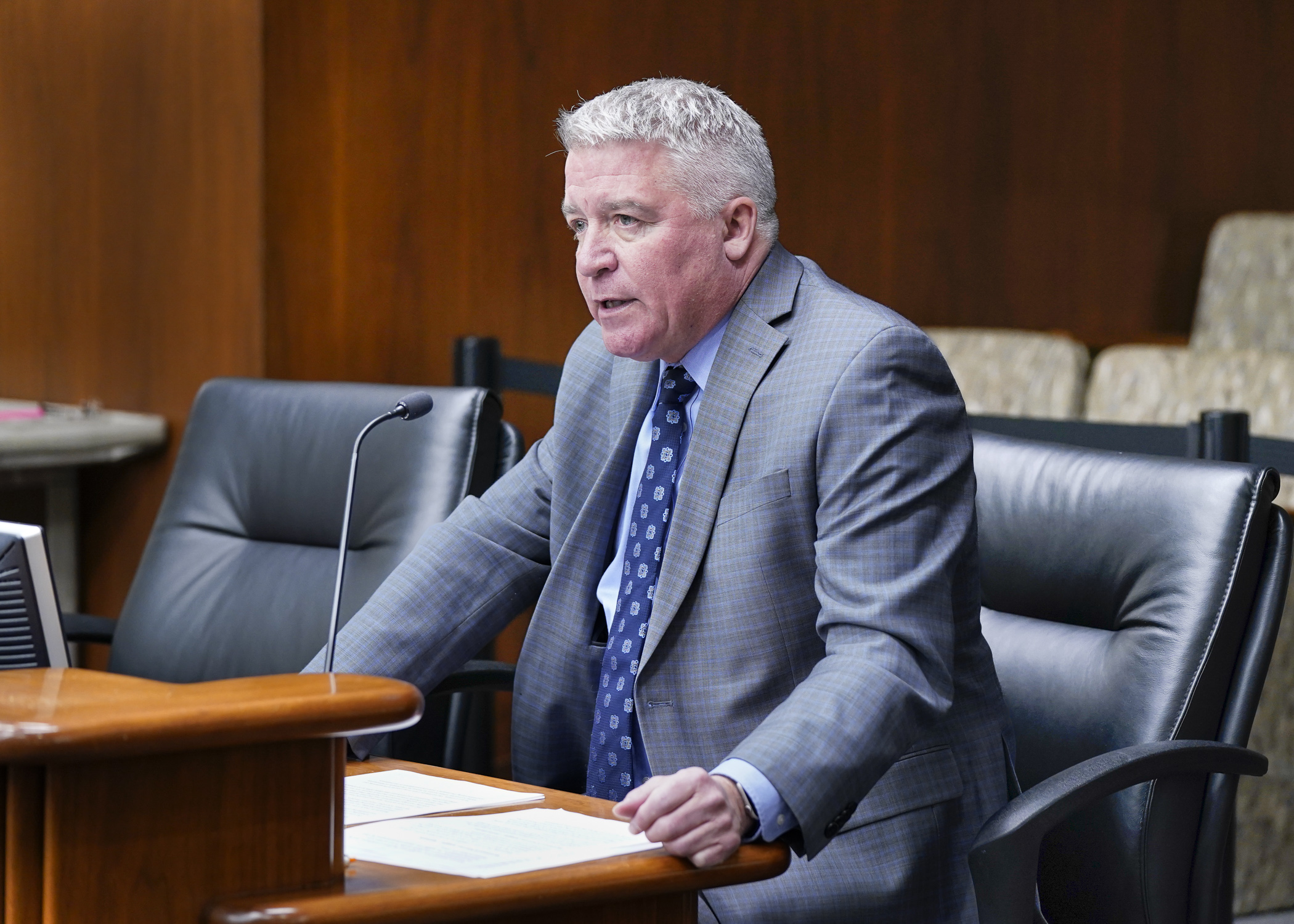Panel hears request for more resources to address crises facing judicial branch

The state’s judicial branch is in crisis and needs more state resources to get it back on track.
State Court Administrator Jeff Shorba shared that message with the House Judiciary Finance and Civil Law Committee Thursday. Sharing its budget request, he said the judicial branch needs an extra $103.5 million — or 11.2% — over a projected $768.6 million base in the 2024-25 biennium to address:
- workforce challenges – judges, clerks and other court employees need pay raises to stay competitive;
- case backlogs – courts have yet to clear about 6,000 cases significantly delayed due to the COVID-19 pandemic;
- technology shortfalls – additional technology is needed continue the option of holding remote court hearings; and
- unfunded or underfunded mandates – funding shortfalls have meant courts have not provided mandated services.
The committee took no action and will re-consider the request it once its budget target is received.
Because an omnibus judiciary finance bill stalled last session, no additional appropriation was awarded the judicial branch in fiscal year 2023.
Shorba is optimistic this year will be different, because the full amount of the judicial branch’s budget request is included in Gov. Tim Walz’s 2024-25 budget recommendations, including 9% and 6% pay boosts for judges and court staff in fiscal years 2024 and 2025.
Lower judicial branch wages have led to high turnover, which Shorba said was 16.8% in 2022, up from 8.9% in 2018.
Staffing shortages mean court hearings are being postponed and some district courts are considering reducing or closing customer service windows.
By prioritizing case processing and hearings, he said, other less critical, but still important, legal matters are significantly delayed. This includes housing court cases, divorce decrees, and parenting time and custody cases.
Representing the Minnesota State Bar Association, Bryan Lake offered full support.
“Courts are a foundational aspect of American life, essential to securing the rule of law and ensuring public safety. After persevering through the Covid-19 pandemic, our court system is faced with recruitment and retention challenges, a pandemic-induced backlog of cases, and ongoing technology needs. The MSBA is confident that properly funded courts could meet those challenges while being careful stewards of taxpayer funds.”
One-time funding
Judicial branch officials are asking for a one-time appropriation of $8.4 million in fiscal year 2024 to address the felony and gross misdemeanor case backlog that peaked at about 13,000 in November 2021 and is still at about 6,000 now.
Shorba said that money is critical because federal funds to help states overcome court delays caused by the COVID-19 pandemic will run out later this year.
A one-time appropriation of $7.4 million would fund technology purchases to continue remote hearings and other court proceedings.
“While our transition to the large-scale use of remote hearings was born out of necessity, it quickly became clear that the people we serve found real value in this method of delivering justice,” Shorba said.
Litigants reported that remote hearings were more efficient, reduced travel times, and required fewer changes to work and child care schedules. And, Shorba said, victim advocate groups reported victims feeling more empowered and safer participating in court hearings remotely.
Related Articles
Search Session Daily
Advanced Search OptionsPriority Dailies
Legislative leaders set 2026 committee deadlines
By Lisa Kaczke Legislative leaders on Tuesday officially set the timeline for getting bills through the committee process during the upcoming 2026 session.
Here are the three deadlines for...
Legislative leaders on Tuesday officially set the timeline for getting bills through the committee process during the upcoming 2026 session.
Here are the three deadlines for...
Latest budget forecast projects nearly $2.5 billion surplus, but red ink down the road
By Mike Cook Three weeks before Christmas, state budget officials provided some merriment to Minnesotans. However, Grinch-like transformations lurk.
Released Thursday, the November ...
Three weeks before Christmas, state budget officials provided some merriment to Minnesotans. However, Grinch-like transformations lurk.
Released Thursday, the November ...